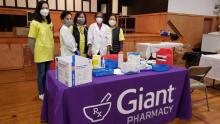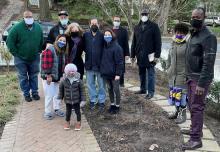“For God so loved the world, that He gave His only begotten Son, that whosoever believes in Him should not perish, but have everlasting life“ (John 3:16, KJV).
John 3:16 reminds me of how much God loves us. He loves us so much that He gave His only Son to take the punishment for our sins and die on a cross in our place. If God hadn’t given Jesus to take our place, we would all be dead, as sin would have consumed us from the inside out.





